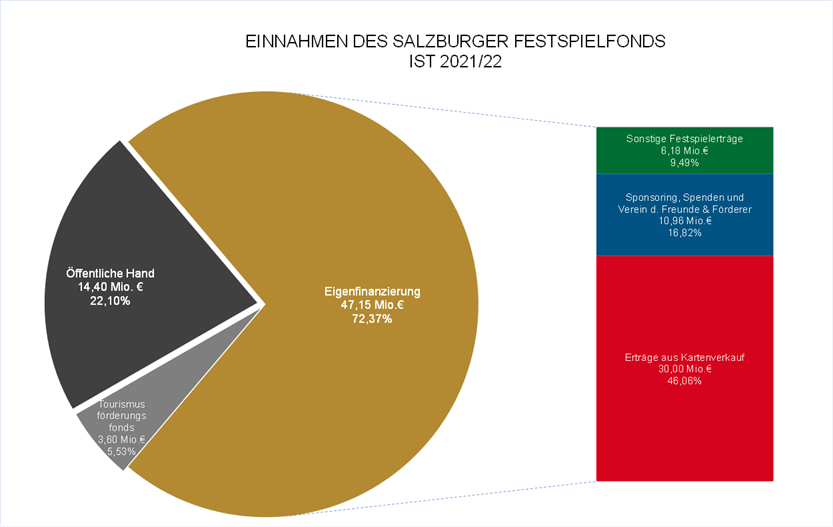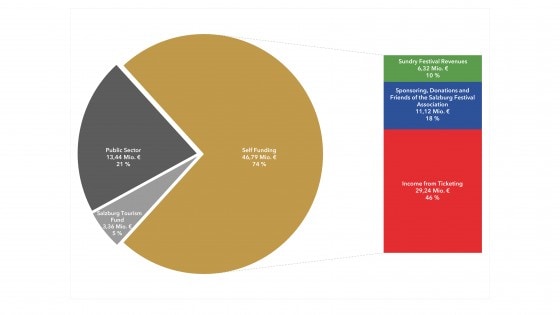Facts & Figures
AN ECONOMIC MOTOR
The economy and the Salzburg Festival? This is often reduced to mere “indirect profitability” benefiting the state. However, as the world’s leading festival of music and theatre, the Salzburg Festival creates far more than mere fiscal effects – as the centre of an organically grown economic ecosystem, it fulfils many functions and affects Salzburg profoundly as a location for business and companies.
Salzburg Festival 2019
199 performances in 43 days in 16 venues
Opera: 42 performances
5 New productions
2 Concert opera performances
2 Revivals
Drama: 55 performances
4 New productions
Revival of Jedermann
4 Drama Investigations
4 Readings
81 Concerts
Staged performance (Orlando di Lasso: Lagrime di San Pietro / Peter Sellars)
Concert performance (Pascal Dusapin: Medeamaterial)
70 Concerts
4 Public Master Classes
5 Special performances
Gala Soirée
20 Children’s programme performances
8 performances of the for the opera for children Der Gesang der Zauberinsel
8 Introductory workshops for the opera for children
4 Public Final Performances of the Opera Camps for Children and Youths
***
Joyful Joyce – An Installation by Ruth Beckermann
Photo Exhibition Pascal Dusapin
6 Screenings Medea (Pier Paolo Pasolini, with Maria Callas, 1969)
Budget and Tickets 2019
Overall Budget
The overall budget for 2018 is 61,76 Mio. Euros.
Number of Tickets and Prices in 2019
For 2019, a total of 237.614 tickets will be issued.
Ticket prices range between € 5 to € 450.
Approximately half of all tickets is located in the lower quarter of the price spectrum, between € 5 and € 105.


